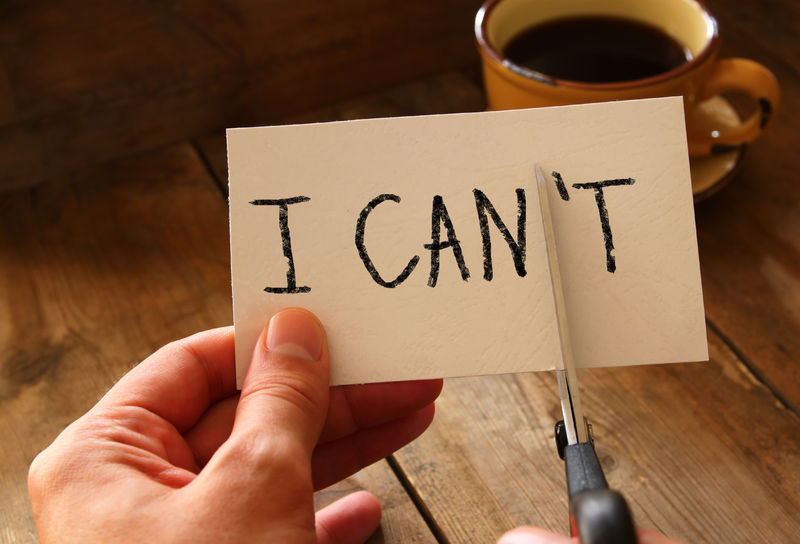 We can only be defined by what we think and say about ourselves. We cannot be defined by what other people say about us unless we allow it. When we listen to what other people tell us we can do, we start to doubt ourselves. It chips away at our self-confidence and we succumb to the statement, “I can’t.” But if we get to know who we really are inside, we won’t be influenced by how others try to define us. If this were easy, no one would ever doubt themselves again. But when our thoughts are in the future, we think of all the things that could go wrong and end up doubting our ability to achieve our goals. Hence, we begin to use the words “I can’t.”
We can only be defined by what we think and say about ourselves. We cannot be defined by what other people say about us unless we allow it. When we listen to what other people tell us we can do, we start to doubt ourselves. It chips away at our self-confidence and we succumb to the statement, “I can’t.” But if we get to know who we really are inside, we won’t be influenced by how others try to define us. If this were easy, no one would ever doubt themselves again. But when our thoughts are in the future, we think of all the things that could go wrong and end up doubting our ability to achieve our goals. Hence, we begin to use the words “I can’t.”
While “I can’t” is understandable, “You can’t” is inexcusable. It’s wrong to use the negative power of “I can’t” against others. When you say, “You can’t do that,” you increase the likelihood of that person saying, “I can’t” to themselves.
Unless you are honestly trying to help or protect them, how do you benefit from telling someone else, “You can’t”? Does it somehow make you feel better? The only logical explanation is that you feel you “can’t,” so you don’t want someone else to believe they can. You try to pass your insecurities and doubt onto other people. When you say, “You can’t” to someone, you attack their self-esteem. You erode their self-confidence by making them feel less than they are. It feels like a challenge to their dignity.
Dignity is synonymous with self-esteem. Both are predicated on how we feel about ourselves, but too often we link them with how others treat us. If people put us down, our self-esteem takes a big hit. If they don’t treat us with respect, we feel like we are losing our dignity. But we don’t have to allow other people’s behavior to affect how we feel about ourselves.
